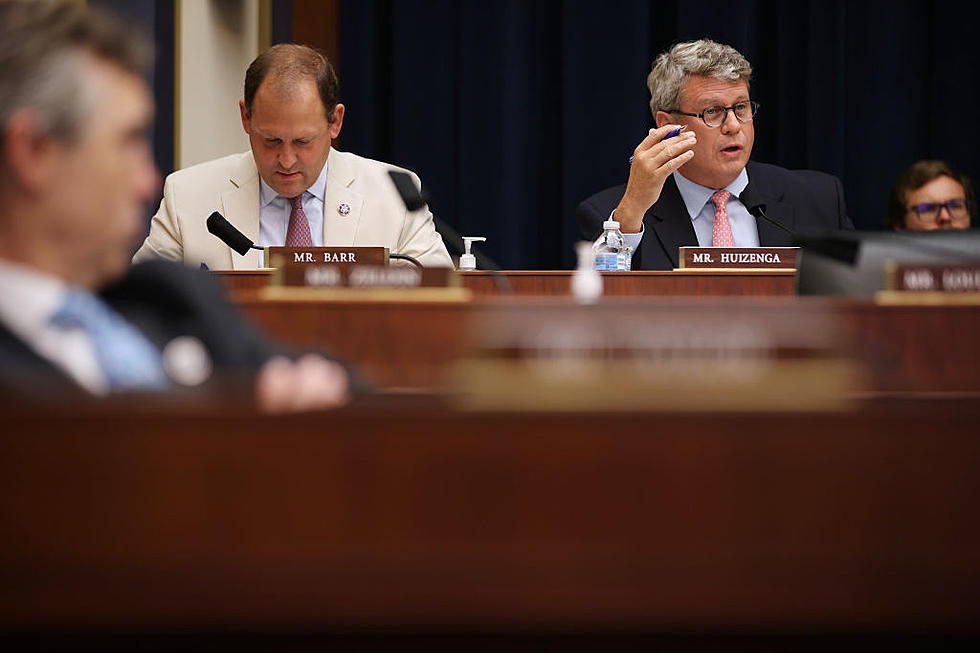Rep. Maturen Speaks Frankly on “Lame Duck” Politics
You might shug your shoulders and say "well, that's politics", but this lame duck session in Lansing is raising a lot of eyebrows and could set a lot of records, as the Republican majority has cranked out a flurry of last minute legislation. 63rd District State Representative Dave Maturen stopped in to be on the 95.3 WBCK Morning Show with Tim Collins on his way to Lansing. The legislature has three more scheduled days in session.
Maturen says he's concerned that so many things are being thrown together at the last minute, and that lawmakers have no time to read the bills, let alone study them and get answers to questions. "Some of this stuff we've never heard about in the last 23 months.......and unfortunately when you have to vote on 40 or 50 bills in a day, you don't have a lot of time, especially when an amendment is offered at 3:30am." He says on one measure, they had about a minute to read the amendment and then vote on the final bill, often after being on the floor for many hours.
Maturen says there's a no-fault insurance reform bill popping up, that is much like the one defeated earlier this year, but it's difficult to even know what's in the bill. 23 Republicans, including Maturen, opposed that previous bill. Maturen says that this bill and many others may get a no vote from him, if he's not able to at least get some information about what he's voting for.
"I guess my inclination is if I don't fully understand what's going on and if people can't answer my questions, then the default is 'no"."
Maturen says he supports a bill that's good for Battle Creek and was put forth in concert with Battle Creek State Senator Mike Nofs that corrects something with personal property tax reform that shorted the City of Battle Creek. He says he's proud to pass this bill and help the citizens of Battle Creek.
Maturen says he's inclined to support a bill that would attempt to get more of a "state-wide" buy in with petitions designed to get an issue on the ballot. The proposed law would limit the percentage of signatures allowed in a single legislative district, and would also identify professionally paid signature gatherers.
Maturen expressed his wish for this lame duck session.
"I would just hope that whatever we pass isn't hyper-partisan, is done for the good of the state, and is well thought out so they don't have to come back and correct it later."
Here are some of the issues still in front of Michigan Lawmakers this week, according to the website Bridge MI.
- A proposal to shift campaign finance oversight away from the Secretary of State’s office to a new bipartisan commission appointed by the governor. Backers say the move is intended to bring a bipartisan approach to the issue. Critics call the bill a Republican effort to rein in the authority of the new Secretary of State, Jocelyn Benson, a Democrat.
- Allowing the Legislature the right to intervene in some lawsuits. Another measure attacked as partisan, with critics saying the GOP is trying to weaken the authority of incoming Attorney General Dana Nessel, a Democrat. Republicans say the bill merely gives the Legislature leeway to weigh in on policy issues critical to the state.
- Preventing public agencies from requiring nonprofits to disclose their donors. Critics have said the measure would make state campaign finance laws even less transparent; Benson campaigned to put more sunlight on money in politics. Proponents say the bill would protect donors who might be discouraged if they thought their information would be publicly revealed.
- Imposing new signature-gathering requirements on citizen petition drives. Groups as diverse as the ACLU of Michigan and Right to Life criticized the measure as unconstitutional and cumbersome, while proponents said it would ensure that future initiatives were more transparent and had support from many areas of the state.
- Awarding schools A-F letter grades. The bill was amended to remove from its language the creation of a new education commission that would operate independently of the state board of education. The proposal now calls for a peer review panel that would have fewer powers.
- A bill that would remove wetlands protections and clear the way for development on more than half of Michigan’s wetlands and more than one-third of its lakes. Supporters, including business groups, say the legislation is needed to protect property rights. Environmentalists oppose the bill and say it could cause the federal government to revoke Michigan's ability to regulate its own wetlands.
- More funding for such priorities as roads or efforts to fight PFAS contamination.
More From WBCKFM









